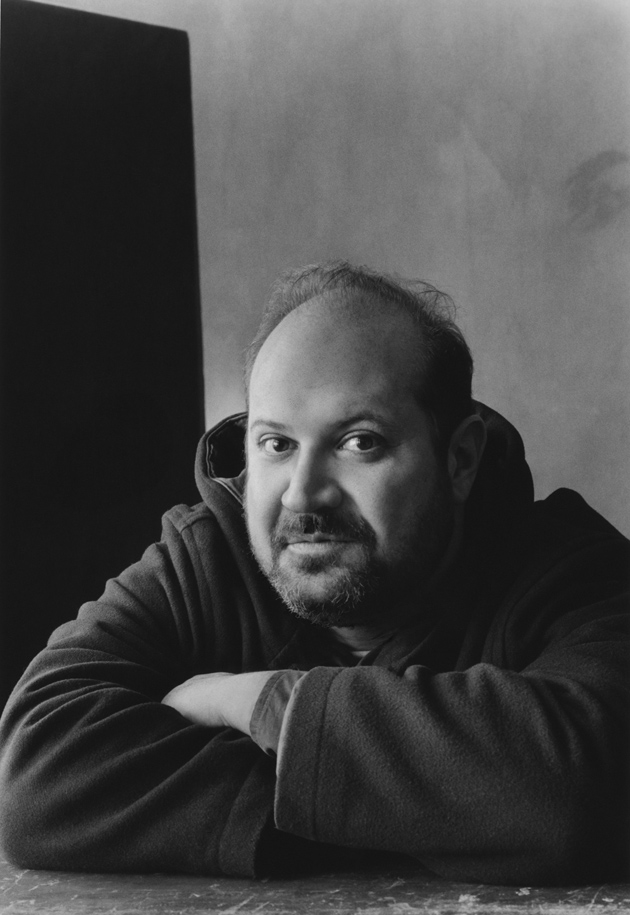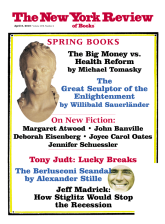If you’ve heard anything about Sam Lipsyte, you’ve probably heard that he’s funny. Scabrously, deliriously, piss-yourself funny (his characters would no doubt find a dirtier, and funnier, way of putting it), drawing audible snorts even from the kind of people, such as the people in his novels, who are way too cool to laugh out loud. In three previous books of fiction, Lipsyte has established himself as the poet laureate of overeducated American loserdom, celebrating the putatively more honest inner lives of those who, in the words of Lewis Miner, the lovably skuzzy narrator of his second novel, the cult hit Home Land (2004), “did not pan out.”
Lipsyte’s characters, crucially, are guys—specifically, the kind of smart-mouthed, vaguely artistic, no longer quite young guys who went to good colleges but are still living in the basement of the culture, bingeing on junk food, junk TV, and self-abuse, with few marketable skills beyond the knack for folding every synaptic twitch into a mini-aria of rage, resentment, and oddly cheerful self-loathing. The Lipsyte hero is a washout who has got the culture’s number, or thinks he does, finding in his own failure an unavoidable corruption and decline at the heart of things. As Miner declares in Home Land, “Our nation wallows in the dark too much, eating cheese puffs, touching ourselves. We think we’re not fat and that we’re a nation.” Milo Burke, the thirty-nine-year-old narrator of The Ask, Lipsyte’s sneakily poignant third novel, has a similar worldview and a straighter way of getting to the point. “Why was I such a diseased fuck?” he asks himself. “It had to be society’s fault. I loved people, all people, except for the ones with money and free time.”
At the beginning of The Ask, Milo is fired from his job in arts fund-raising at what he likes to call “the Mediocre University at New York City,” the kind of place where “people paid vast sums so their spawn could take hard drugs in suitable company, draw from life on their laptops, do radical things with video cameras and caulk.” A formerly promising painting major with a degree from what we’re given to understand was a less mediocre school, Milo lives on the fringes of the creative class in Astoria, Queens, with his wife, Maura, and their three-year-old son Bernie. He spends his days eating doughnuts, cruising niche porn sites, and wondering where Bernie picked up words like “depressive” and “pansy,” and what they might have to do with him. Maura works part-time at a marketing firm, writing memos on “need creation” and possibly having an office affair on the side. They have stopped having sex, and pretty much stopped talking. Watching a cheesy romantic comedy one night, Milo reminds Maura, “We used to hate this together.” She replies, “Maybe we can get back to that place.”
A shot at redemption, and vague gestures toward a plot, arrive when Mediocre summons Milo back to help on a big “ask,” or donation, from Purdy Stuart, a college friend who has turned his father’s money into more money in the Internet start-up racket. For Milo, it’s a chance to win his job back and save his marriage. But it also leads in an equal and opposite direction, back toward his undergraduate days spent hanging out with a crew of varsity slackers and semiotics majors, a kind of Lost Generation stranded between “the fall of the Soviet Union” and “the beginning of aggressively marketed nachos.” “We drank local beer, smoked homegrown and shake,” Milo recalls. “We used words like ‘systemic,’ ‘interpolate,’ ‘apparatus,’ ‘intervention.’ It wasn’t bullshit, I remember thinking at the time. It just wasn’t not bullshit.”
As it turns out, Purdy also has an ask: he wants Milo to help funnel hush money to his illegitimate son, Don, a veteran of the “non-salvation army” who came back from Iraq with two titanium legs and some wildly profane riffs of his own. Don is less a fully fleshed character than a useful cyborg, part wounded child, part creaky plot-driving machine, and speaking with an awfully familiar voice. Listening to Don talk bitterly about his “can-do mission-accomplishing humps,” Milo notes a near-knowing, not-knowing snarl” that reminds him of “so many kids from college,” including himself.
“Nobody likes a story, especially a good story,” Miner says in Home Land, which relieved itself of the responsibility of quite adding up to one by taking the form of a series of long, ranting (and definitely unprintable) notes to a high school alumni newsletter. The Ask hews to a more conventional novelistic structure, but Milo doesn’t like stories any better. “They take so long,” he tells Purdy. “Most of them are a waste of time. I like jokes. Can you tell me your story in joke form?” If the action lacks much forward progress, The Ask succeeds as a series of brilliant riffs and satirical set pieces, skewering progressive preschools, reality TV, Brooklyn hipsters, conceptual art, natural childbirth, self-righteous foodies, and politically correct office culture, along with just about everything else. The targets are sometimes soft, but Lipsyte’s prose arrows fly with gloriously weird spin, tracing punch-drunk curlicues before hitting their marks—or landing in some nearby alternate universe. In a wonderfully demented dream, Milo encounters Ben Franklin, our great national anti-slacker, who apologizes for that incident in the tavern (“I never knew you possessed any Hebraic blood”) and asks Milo just what he is. “You know what I am, Ben,” Milo replies. “A man with many privileges and zero skills. What used to be called an American.”
Advertisement
There are lots of lines like this in The Ask, and Lipsyte seems to mean them. But the novel is more affecting when it turns away from knowing riffs about the homeland and points toward plain old home, laying off the way we’re messed up by our imperial hangover in favor of the way we’re messed up by mom and dad—especially dad. The Ask is a shooting gallery of bad fathers, from Milo’s own philandering “Flying Dutchman of a dad” (now dead) to the coldly calculating Purdy to quite possibly Milo himself. Walking in his neighborhood, he spots a possible exception, a chain-smoking “throwback papa, reminiscent of another time, another texture,” exuding “that full-hearted but fatalistic love from before people used ‘parent’ as a verb.” The man and his whole family are promptly mowed down on the Brooklyn-Queens Expressway. “He would never go down in history, or case history, as a shitty father,” Milo laments. “Whereas me, I still had a decent shot.”
The novel’s plot, such as it is, tracks the standoff between Don and Purdy, and the increasingly tense dance between Milo and Purdy, who represents the kind of ease and privilege Milo realizes he was never really destined for (or, more to the point, entitled to), whatever the gatekeepers of our meritocracy told him. But the book’s surprisingly tender core lies in Milo’s efforts to maintain a bond with Bernie, whose budding thuggishness prompts some of Lipstye’s sharpest dialogue and most startling comic asides. “It was hard to imagine the boy completing kindergarten,” Milo thinks, “remarkably easy to picture him in a tangle of fish knives and sailor cock under some soft-rot pier”—one of many such confessions. Bernie is obsessed with dinosaurs and penises and “playing guys,” and has a knack for innocently sucker-punching Milo right in his collapsing male pride.
“You’re a nice pansy,” Bernie says out of the blue one afternoon, echoing something he’s heard Maura say over the phone to her lover. In a flashback, Milo’s father assures him that it’s okay if he’s gay, which he isn’t (though his mother, after the death of the old monster, is quite happy to realize that she is). But even as Milo’s fantasies consistently run toward large breasts bursting out of burgundy bras, his deeper gaze is fixed firmly on the bodies of men, whether it’s Purdy’s moneyed muscle tone or the damaged bodies of the guys who do the heavy lifting and take the bullets. Passing a grizzled mechanic—“his 1950s drag-strip hood shtick had to be retro from the jump, a mid-70s reaction formation, some cold Fonzian rhapsody”—Milo stares at his own hands, “soft, expressive things, gifted, even, like specially bred, lovingly shaved gerbils.”
And then there is Don, who got his legs blown off playing guys in Iraq. “Can I get some legs like that?” Bernie asks, and Milo also can’t stop looking at Don’s “girls,” as Don calls them (in what turns out to be a not-quite-persuasive allusion to an Isaac Babel story). “How easy it would be to say the hell with it all,” Milo thinks, “to lie on a cot with your titanium legs and curse your fate and soil the cot you curse your fate upon and not want to learn how to do anything all over again. I was on the verge of such behavior with my original legs.” The parallels between Milo and Don can be facile, an inexpensive way of bringing Milo out of jive-talking cultural studies and into real history. But Milo is a casualty too, if only of his own hypertrophied sense of “greedy, spangled destiny.” His bitter jokes are both his Maxim gun and his prosthesis. If they no longer keep him defended, at least they keep him propped up.
Advertisement
America “was a run-down and demented pimp,” an office temp at Mediocre declaims to Milo in the novel’s opening lines.
Whither that frost-nerved, diamond-fanged hustler who’d stormed Normandy, dick-smacked the Soviets, turned out such firm emerging-market flesh? Now our nation slumped in the corner of the pool hall, some gummy coot with a pint of Mad Dog and soggy yellow eyes.
The Ask is a brilliant illustration of both this point and the limits of this kind of point. It’s about what happens when the spinners of knowing, not-knowing riffs look around to find that everyone else has stopped listening and graduated to adulthood, whatever that is. “You really had to hustle to recruit the right people to prop up your delusions,” Milo says. “The moment somebody broke ranks, or just broke for a protein shake, the whole deal teetered.” Which is both bullshit and not bullshit—and, like this highly entertaining and suprisingly sad novel, very funny either way.
This Issue
April 8, 2010




